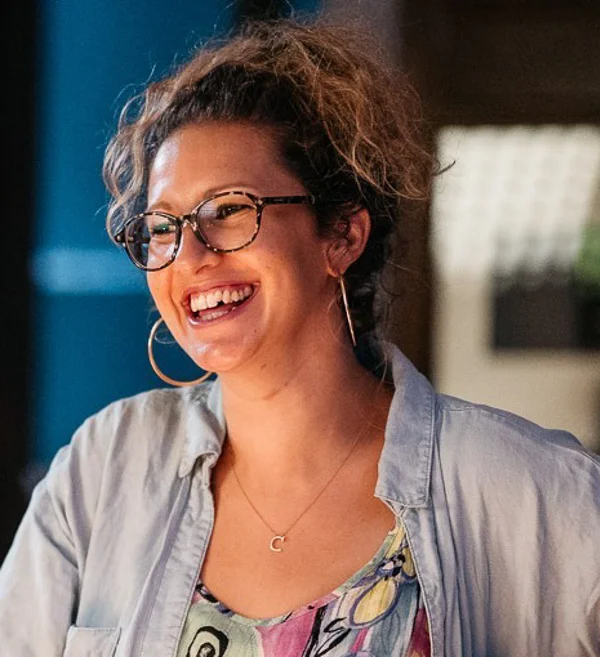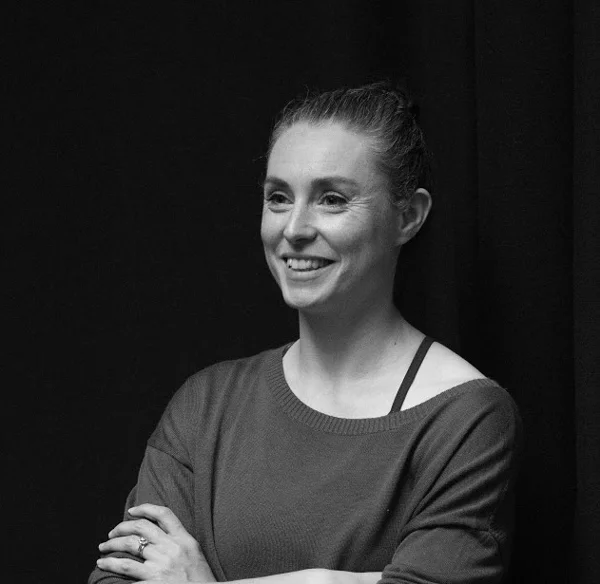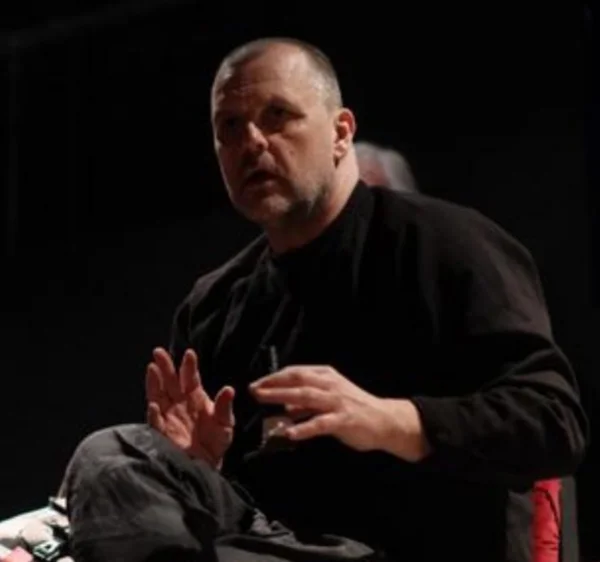We represent Directors, Designers and Fight Directors in Equity.
As the Directors and Designers Committee we take action on any matters relevant to the professional employment of Equity members who work as designers, directors or fight directors in all areas of theatre. We submit industrial claims to relevant employers and agree settlements of claims.
Why theatre directors and designers should join Equity
Not a member? Find out what Equity can offer stage directors and designers.
Who we are









To support directors and designers in negotiations over contracts we have undertaken work to provide job descriptions for the following roles:
- Set Designers
- Costume Designers
- Set and Costume Designers
- Assistant Designers
- Associate Designers
- Assistant Directors
- Resident Directors
- Associate Directors
These are available for anyone to use, and we want to hear from you about the information we have already collated.
For the descriptions and for more information, visit our Job Descriptions For Designers and Directors page.
I’ve not been paid on time after completing work: what are my options?
Awaiting payment as a freelancer can be stressful, especially if you’ve already nudged a client or collaborator. Members working in the sector sometimes express a fear of being assertive about late or non-payment, as they want to maintain good relationships with people and organisations they could work with again in the future. Nevertheless, you do have legal rights and protections.
What counts as a ‘late’ payment?
If you haven’t agreed a payment date at the point of engagement or in the contract, the law says the payment is late 30 days after whichever is the latest of either:
- the customer (be that a producer, another creative who has booked you, school, local authority, theatre or other business) receives your invoice or
- you have provided the service (for instance: a workshop, model box, your work as a director, your completed design)
You should check contracts you have signed carefully to see what payment terms you have signed up to – Equity can advise on this if needed.
Can I charge interest on a late payment?
Yes. The amount you can charge is called ‘statutory interest’ and is calculated as 8% plus the Bank of England base rate. The rate you can charge is set every 6 months on 1st January and 1st July. You can find the current, and previous interest rates that you can charge on this website here.
You can also charge a fixed sum for the cost of recovering a late payment on top of the interest; the rates are fixed and based on the amount of debt owed. These are as follows:
- For debts under £1,000 the fixed charge is £40
- For debts between £1,000 and £10,000 the fixed charge is £70
- For debts over £10,000 the fixed charge is £100
If you want to add late payment charges and interest to the money you’re owed, you should send a new invoice to the client.
Example: If you are owed £1,500 which should have been paid on 1st February 2023, the interest rate which applies to this debt is 11.5% pa (Set 1st January 2023 and applies until 30th June 2023).
- The annual statutory interest on this would be £172.50 (£1,500 x 0.115 = £172.50)
- Divide £172.50 by 365 to get the daily interest: 47p a day (172.5 / 365 = 0.47)
- After 80 days (eg. on 22nd April 2023) this would be £37.60 (80 x 0.47 = 37.6)
- Add the fixed charge of £70
- The total additional amount that you would be adding to your invoice at this point would be £107.60 (37.6 + 70)
What if they still don’t pay?
You can make a court claim – which you might have heard referred to as taking someone to small claims court.
You can find out more about it here but get in touch with your Equity Official to see whether a claim would be suitable in your case, because when you have worked as a director or designer on an Equity agreement (so on the West End, with a UK Theatre venue/producer or an ITC Ethical Manager producer) we can intervene to get you your money without the need for a court claim.
If you do end up needing to take a court claim, Equity can support you through this process.
Is there any wording I have to put on my invoices?
You don’t have to add anything to your invoice about late payment in order to be covered by the legislation. However, some people and businesses do add clauses that flag to clients that they will expect prompt payment.
If you do include wording on your invoices, double-check it is accurate. For example:
NB: The Late Payment of Commercial Debts (Interest) Act 1998 applies to this invoice. If payment is not made within 14 days then interest will be charged at a rate of 8% above the Bank of England base rate at the date the payment fell due from that date until payment is made.
The statement includes the correct calculation for interest due, and references the correct part of the law.
However, according to the government’s own guidance, interest should be calculated from 30 days after the work was completed or invoice issued. You should also check the standard terms you have on your own invoices are agreed at the point of contract with the producer/venue you are working for.
These are the copyright clauses from the Equity/SOLT and Equity UK Theatre Agreements for Directors.
SOLT
All copyright or like rights which may now or in the future exist in the product of the Director’s services for the Production or otherwise from the Director’s involvement with the Production shall hereinafter be referred to as the Direction and shall be and remain vested in the Director.
In consideration of the sums payable to the Director under this Agreement the Director hereby grants to the Manager a sole and exclusive licence to use the Direction in the Production and for such other forms of exploitation of the play and/or the Production as are permitted under this Agreement. Such licence will subsist for the period of the initial run of the Production at a SOLT theatre under this Agreement (including any pre-planned tour for which the Artists are engaged on the SOLT/Equity Agreement for West End Theatre Artists)and thereafter as mutually agreed between the Manager and the Director.
The Director hereby unconditionally and irrevocably grants to the Manager every consent necessary including under Part II of the Copyright, Designs and Patents Act 1988 for the Manager to make the fullest use of the services provided by the Director hereunder and the widest possible exploitation of the Direction as is permitted under this Agreement.
To the extent that the Director actually makes a contribution to the text of the play (to include a stage direction that thereafter becomes part of the text of the play) the Director shall assign to the Manager with full title guarantee, including by way of assignment of future copyright, all of the Director’s right, title and interest in and to such contribution throughout the universe for the full period of copyright and thereafter in perpetuity. It is acknowledged that the Director shall not be able to make any additions or alterations to the text without the prior written consent of the Manager.
UK Theatre
All copyright or like rights which may now or in the future exist in the product of the Director’s services for the Production or otherwise from the Director’s involvement with the Production shall hereinafter be referred to as the Direction and shall be and remain vested in the Director.
In consideration of the sums payable to the Director under this Agreement, the Director hereby grants to the Manager a sole and exclusive licence to use the Direction in the Production and for such other forms of exploitation of the play and/or the Production as are permitted under this Agreement. Such licence will subsist for the performing period of the Production / the planned touring period of the Production as defined in the Contract, and thereafter as mutually agreed between the Manager and the Director.
The Director hereby unconditionally and irrevocably grants to the Manager every consent necessary including under Part II of the Copyright, Designs and Patents Act 1988 for the Manager to make the fullest use of the services provided by the Director hereunder and the widest possible exploitation of the Direction as is permitted under this Agreement.
To the extent that the Director actually makes a contribution to the text of the play (to include a stage direction that thereafter becomes part of the text of the play) the Director shall assign to the Manager with full title guarantee, including by way of assignment of future copyright, all of the Director’s right, title and interest in and to such contribution throughout the universe for the full period of copyright and thereafter in perpetuity. It is acknowledged that the Director shall not be able to make any additions or alterations to the text without the prior written consent of the Manager.
These are the copyright clauses from the Equity/SOLT and Equity UK Theatre Agreements for Designers.
SOLT
All copyright or like rights which may now or in the future exist in the product of the Designer’s services for the Production or otherwise from the Designer’s involvement with the Production shall hereinafter be referred to as the Designs and shall be and remain vested in the Designer.
In consideration of the sums payable to the Designer under this Agreement the Designer hereby grants to the Manager the sole and exclusive licence to use the Designs in the Production and for such other forms of exploitation of the play and/or the Production as are permitted under this Agreement. Such licence will subsist for the period the initial run of the Production at a SOLT theatre under this Agreement (including any pre-planned tour for which the Artists are engaged on the SOLT/Equity Agreement for West End Theatre Artists); a move from one theatre to another within the scope of this Agreement (provided that the Production re-opens in the new theatre no longer than 4 weeks after closing in the original theatre and that the Designer receives payment under Clause 7.2 for any additional work required as a result of the move between theatres); and thereafter as mutually agreed between the Manager and the Designer.
Subject to mutual agreement between the Manager and the Designer and the fee agreed in respect of that as stated in Clause 7 of the Contract which shall be the appropriate fee for the design work done plus at least twice the Designer’s original fee, the Designer shall be deemed to have granted to the Manager a sole and exclusive perpetual licence for a period of 10 years from the last performance of the initial run at the SOLT theatre in any and all jurisdictions throughout the world to use the Designs in the Production and any subsequent production of the play presented by the Manager or by any third party authorised by the Manager or for such other form of exploitation of the play, the Production and/or any subsequent production as are permitted under this Agreement. Such agreement will override the provisions of clauses 6.1, 6.2, 7, 8 and 9 for that period.
The Designer hereby unconditionally and irrevocably grants to the Manager every consent necessary including under Part II of the Copyright, Designs and Patents Act 1988 for the Manager to make the fullest use of the services provided by the Designer hereunder and the widest possible exploitation of the Designs as is permitted under this Agreement.
UK Theatre
All copyright or like rights which may now or in the future exist in the product of the Designer’s services for the Production or otherwise from the Designer’s involvement with the Production shall hereinafter be referred to as the Designs and shall be and remain vested in the Designer.
In consideration of the sums payable to the Designer under this Agreement the Designer hereby grants to the Manager a sole and exclusive licence to use the Designs in the Production and for such other forms of exploitation of the play and / or the Production as are permitted under this Agreement. Such licence will subsist for the performing period of the Production / the planned touring period of the Production as defined in the Contract, and thereafter as mutually agreed between the Manager and the Designer.
The Designer hereby unconditionally and irrevocably grants to the Manager every consent necessary including under Part II of the Copyright, Designs and Patents Act 1988 for the Manager to make the fullest use of the services provided by the Designer hereunder and the widest possible exploitation of the Designs as is permitted under this Agreement.
The Chair and Vice Chair of Equity’s Directors and Designers Committee on balancing work with pregnancy.
Zoe Spurr, lighting designer
My experience whilst bring pregnant and working has been fairly good throughout, producers and production managers have been brilliant at checking in and adapting to my changing needs. I’ve been able to attend all my appointments by making sure they’re booked early in the day in order to then travel to work later on. Also an additional scan at 13 weeks was sensitively supported by all involved, so I felt relaxed with the appointment and could take time after to recoup and get back in the right headspace for work.
The one big problem I faced was uncomfortable production desks- at a West End theatre I was working in you “can’t” take the seats out, or after investigation it costs a lot of money to do so, meaning a more ergonomic seating position wasn’t viable. The offer instead was a wooden board across the seats. There was a lot of embarrassment and apologies given from staff members and producers, but nothing changed. To try and avoid the inevitable bad back and neck, I bought an inflatable cushion for each of my team, and a back support for myself in the hope it’d extend the seat back just high enough for a bit more support. I should also add, you can’t get massage treatment until after 12 weeks, and I was already living in a lot of pain from frequently bad seating positions. The options I bought were OK, but if I’d be there any longer than a week and a half I would have really suffered.
So who’s responsibility is this? The theatres? The incoming producer? How much notice should be given for this to happen? I was only around 11/12 weeks pregnant at this point, so couldn’t have given any more than 8 weeks’ notice of a request for seats out, is 8 weeks enough? Can budgets, time and schedule be flexible enough to allow for this to happen? The ALPD have already had many members flag the serious implications of uncomfortable production desks, pregnant or not. In extreme cases I’ve known people be hospitalised with bad backs caused by terrible workstations in tech.
Something needs to change, so if you want to feed in/share experiences/help the change then please get in touch with either Equity via the committee email address, or with the professionals working group at the ALPD (professionals@thealpd.org.uk) who are keen to tackle this issue.
My next step will be navigating working life with a baby. I’m keen to hear stories of successful practice and ways we as a committee can support parents and carers alongside PiPA. We also continue to support the need for change within our industry to better accommodate those who wish to have families (or just a life….! Very keen for everyone to benefit from positive change in future!). There are already exciting movements around a 5 day working rehearsal week, and as a committee we are feeding in thoughts to how this could extend into tech for the creative team without meaning more time away from home/families, and not financially crippling everyone with travel costs too. The louder our voice the more change we can encourage and inspire!!
Charlotte Peters, director
My pregnancy journey has generally been really well supported by my various projects - I've found as a first time mum-to-be, one of the biggest challenges has been knowing what to ask for as often companies have asked me what would be helpful.
If you're in a similar position, my top learnings throughout my pregnancy have been to ensure I'm well hydrated which means sometimes I've had to ensure water is even more closely-accessible and I've had to add more breaks to ensure I get it enough! Similarly, sometimes actually taking the tea and meal breaks in rehearsals (which I used to work through) has been really necessary to just take a little time out. Sitting in one place for hours just doesn't work for most pregnant bodies so when directing, I've just said to casts at the start of rehearsals that I may move about a bit and have tried to ensure padded seating with good back support where possible. Putting my body (and baby) before work has been a real adjustment as I'm so used to just zooming through but I've found if I let those around me know it's something I'm working on, there's been really useful support and reminders to drink/move/take breaks etc!
In latter weeks, I've also requested lift access or asked for meetings/rehearsals to only be one flight up. Similarly I've said I can only stay in hotels that are accessible.
There was a period of time where it looked like a show I was working on would transfer to the West End when Baby would have been 6 weeks or so old. This was the big challenge for me - the company were great with asking me what I needed but I just didn't know and I totally failed in reaching out to brilliant organisations like PiPA which I think would have really helped and which I'd definitely advise others to do. What did help though was being told by several parent-producers/directors what their experiences were postpartum and from their guidance and advice, we concluded that I would be relying very heavily on associates and shouldn't try to commit to being in any specific rehearsals in the immediate weeks after birth, but just see how I got on in terms of sleep patterns and brain fog. I would bring Baby to work and only go in when I could, and the producers were willing to find me a flat that was walkable from rehearsals and the venue to make life easier.
I am very aware I was really lucky with the above and actually am so relieved that this particular production is being postponed so I won't have to juggle being a brand new mum with work, but having that support from other freelance parents who understood and using that to know what to ask for without feeling guilty was really useful. It obviously also helped that the show would have been remounted - the above idea couldn't have worked with a new production - and certainly I wouldn't have had the headspace.
The tough part of pregnancy vs work has been trying to convince producers who don't have children that I am a viable option for employment in future. I can hear the hesitation when trying to get dates for the year ahead and projects booked in like there's an assumption I'll let them down. I also had a producer take a job away because they assumed I wouldn't be able/wouldn't want to do it. Unpicking this with them recently has boiled down to the fact they were too busy for a proper conversation which they know was wrong and I hope they won't make the same error with others.
Financially, I've also been much more upfront than usual, pushing projects that are yet uncontracted for at least a letter of agreement so we can get initial payments in place in advance, meaning I have some savings to top up what is the pretty poor statutory maternity money from the government.
If any directors or designers out there want to reach out with your learnings through pregnancy and parenthood or if folks want to talk through options that may relate to Zoe and my experiences or just to have people who get it, do reach out and we or one of the other parents on the committee will do our best to chat.
Further resources on maternity and care are available on the Equity website.
These fringe agreements are also sample contracts that you can use in negotiations with producers who do not use an Equity/SOLT, Equity/UK Theatre or other industry standard contract.
They are available as pdfs to download, but if you would like this document in an alternative format please email directorsanddesigners@equity.org.uk
Open meeting notes
These notes are a summary of two open meetings held over Zoom in April 2024 for directors and designers to discuss creating a Green Rider for the Creative Team, building on the work of Equity’s Green New Deal network. Individual contributions have been anonymised.
Reports, training and resources referenced across the discussions
- ALPD UK Hire Companies Map
- Indigo Act Green Report
- SBTD Carbon Literacy Training
- Ergon Theatre Climate Leadership Training
- Theatre Green Book resources
- Equity Green Rider
Sustainability – Contractual Considerations
- If the producer you are working for wants to reuse-recycle the products of your design labour, what are the copyright and payment implications?
- Clarity on what is – and what is not – the responsibility of the creative team member, and what sits with the production manager or other staff.
- Additional time and cost implications: agreed budgets.
- Sustainability practices to be agreed, not imposed – before contracts are signed, and as early as possible.
- Information about key production staff the creative team member can liaise with on sustainability and local resources to be provided before work starts.
Practical Considerations
- Additional research time required to build in sustainability.
- Even if a green consultant/sustainability advisor has been appointed if that person comes from outside the theatre sector there can be difficulties.
- Problems arise when the creative team are only told they are expected/required to work sustainably at white card.
- Mechanisms and practicalities of sustainable working should be agreed – a mutual conversation about what is possible with time and budget, not an imposition.
- Cost implications – mixture of experiences where sustainable working has turned out to be both cheaper and more expensive that not doing so.
- If you don’t know what resources the venue/company you are working for has available then much, much harder to plan for sustainable working – not always easy to access this information.
- Vital for all departments to be on the same page – isn’t always the case and expectations are sometimes uneven/unfairly loaded onto freelancers.
- Designing for touring productions: most workshops working sustainably are attached to venues/part of an institution. Harder to access if you’re not working there.
- No point recycling an old set – for example – if the travel for a tour is all private cars. Environmental impact has to be considered across all aspects of a production
Structural Problems
- Loss of in-house design jobs has implications for knowing what is available locally. If you are a designer based in your London studio, you are not necessarily familiar with the infrastructure available in – e.g. – Bristol for sustainable materials.
- The loss of permanency for many of our professions means local knowledge and networks are never built up. When the entire creative team on a particular show is freelance, responsibility for sustainable working cannot be entirely loaded onto a transient workforce.
- Audience impact also must be considered, particularly in less urban areas. If the only way for 500+ people to see a show is to drive there because the public transport stops at 9pm, then what is environmental impact here compared to – e.g. – using reclaimed flooring? To what extent does the sector need to be more invested in public transport campaigns?
- Do venues do enough to encourage use of public transport for journeys to and from shows even where it is an open?
- Professional risk: When work is judged on aesthetics, what impact does sustainable practice have on overall concept realisation and audience/future employers’ opinions?
Ideas
- A shared, open access materials inventory listing which venue/company has what available to borrow and what staff knowledge/polices are available: open to freelancers and smaller companies too.
- Collaboration between workers in trade unions operating in the manufacturing and construction sectors?
- Greater awareness raising of what exists, such as ALPD’s hires map.
- What is the role of the Arts Council in rolling out carbon literacy training and monitoring sustainability standards across the sector?
- Indigo Act Green Report: 77% of audiences and visitors think organisations are not doing enough, or feel they are not communicating what they are doing effectively. Why is this?
- Permanently employed environmental officers
These notes are a summary of two open meetings held over Zoom in January 2024 for directors and designers to discuss contracts and negotiation skills. On this occasion we are sharing only the introductory comments by the Equity Official present at the meeting.
What is a contract?
A contract is an agreement between two parties that one will do something for the other in return for 'consideration' (usually a fee). There must be clear offer and acceptance, and an intention on the part of both parties to enter into a binding agreement.
Contracts don’t have to be formal documents – a contract can be formed verbally, or through a series of WhatsApp messages or emails. But if anything goes wrong, a verbal contract may be difficult to prove which is why Equity always recommends that you have a contract in place before you start doing any work. In the event of a dispute, it’s much easier to point to something in writing.
We don’t recommend that you start work as a director or designer before you have signed a contract. If it is absolutely necessary to do so you can contact Equity for advice if you are a member.
Be aware:
Just because you haven't actually signed a contract does not mean it is not binding. If you've been issued with a contract and commence providing services on it without raising concerns about clauses you are not happy with then you are normally deemed to have accepted it. It can be difficult to argue about things you're not happy with further down the line – so always make sure that you record any points you believe are still subject to negotiation.
Just because you have signed a contract does not mean it's legal. Some contract terms breach legislation and even though the contract is signed by both parties some terms could be challenged later on.
What about deal memos?
We regularly see deal memos issued to all theatre workers, sometimes also referred to as Heads of Terms, or Letters of Intent. The purpose of these documents is to clarify the key points of a contract before it is actually issued – so the issuing of a deal memo is where you would normally negotiate over contractual elements such as your fee, your expenses, your copyright and so on. You need to check the language in any deal memo carefully to be sure if it is or is not binding – or, if it is actually a contract – and Equity can advise you if you’re in any doubt.
Knowing what contract you are working on
If you are working for a SOLT member or a UK Theatre member producer as a director or designer then you will be working on a contract that is underpinned by the collective agreements negotiated between Equity and those management associations, and the contract you are issued cannot worsen the terms of that agreement.
You won’t always know if this is the case or not because the collective agreements are not always referenced in the contracts you are sent to sign. But you can always ask this question – and you should – because where the minimum terms of these agreements are not met then we can intervene to get your offer improved.
These agreements are what are known as ‘minimum terms agreements’ – they are floors through which nobody must fall, not ceilings through which nobody must rise. They cover copyright clauses, your entitlement to expenses, your rights to payment in the event there is a failure to produce, payment if you are ill – all sorts – so do always ask if the wider terms and conditions of the Equity agreements are being adhered to.
If you’re not sure if the contract you’ve been offered by a SOLT or UK Theatre member is in line with those agreements then ask us.
Basic information to check for in your contract:
- Your name
- The name of the company you are working for that has responsibility for paying you;
- The nature of the work you will be doing;
- The fee you have agreed plus how it will be paid to you;
- Key dates for the work;
- Copyright provisions;
- Expenses
You can use the Equity fringe agreement in negotiations – along with our job descriptions, they are there to support you in getting the best deal. Just visit the ‘Resources for Directors and Designers’ section of the Equity website.
Good practice in negotiations
It can be tricky to find the time to fit this in but a key factor in the outcome of your negotiations is the preparation work you do before you even start: getting all your arguments in place for why the fee should be higher based on your skillset, your experience, and the central contribution your work makes to the production.
Create a check list of questions you want to ask about the job and about the expectations the producer has so you know what you’re signing up for and there aren’t any nasty surprises once the contract has already started.
Think in advance about what you’re prepared to compromise on and what you’re not – you can waste hours and hours in conversations about something that is non-negotiable for you if you haven’t decided in advance what areas you are prepared to compromise on, and what you’re not. If you end up walking away from something because it isn’t possible to agree the terms you’re offered, it’s better to do that at the earliest possible point because it takes up less of your time.
Quantify your work. Don’t assume a level of knowledge about your process and the time it takes on the part of the person looking to engage your services – your prep time will be different to the last director they worked with, your research time will be different to the last designer they worked with. If you clearly detail what is involved for your labour and your time, you are more likely to get movement on the money you’ve been offered.
Take your time. If you are able to do so, taking some time to think about how best to respond and what further evidence you might need, or what additional points you might want to make can be really important.
Keep everything in writing: Try and resist undertaking contract negotiations over the phone – or if that is unavoidable, make sure you’re writing clear notes and send a summary after the conversation to check your understanding. It is much easier to keep track of everything when it’s written down and this also helps you avoid ambiguity later on.
Make sure the contract reflects the agreement you believe you have reached before you sign it – and if it doesn’t, don’t be afraid to push back on it.
Remember that if you are a member of Equity you – or your agent on your behalf – can contact us for advice on your contracts.
These notes are a summary of two open meetings held over Zoom in May 2023 for directors and designers to discuss upcoming joint work between Equity and UK Theatre/SOLT on a five day working week in the rehearsal period. Individual contributions have been anonymised.
Committee intro
In recent negotiations over the performer and stage manager agreements, Equity and UK Theatre/SOLT have agreed to form a working party on developing best practice guidance for a five day working week in the rehearsal period, with trials already agreed in six subsidised venues between now and Christmas 2023. We are holding these open meetings in advance of starting discussions with UK Theatre/SOLT to ensure that the needs, concerns and working patterns of directors and designers are included in planning the trials in the subsidised sector, and upcoming discussions about the West End and commercial theatre.
We’re also aware that there are a number of examples where a five-day working week is already the norm – and we want to ensure that best practice from members experiences of working in this way is incorporated into our discussions. Planning the trials and conversations with UK Theatre/SOLT has not yet begun, so if you have further thoughts to share you can email us: directorsanddesigners@equity.org.uk
Practicalities
For people working away from home, a five day working week in the rehearsal period would mean it’s possible to get home for two full days – good for work/life balance and seeing family. But needs to be properly planned with clear days off from the start of your involvement because if you’re holding days that then don’t happen, it becomes too late/too expensive to book travel home and could result in more time to kill in a place you don’t know by yourself rather than meaningful time off.
Key differences between directors and designers here so need to ensure both working patterns are included. The director will be in the rehearsal room all the time, but a designer will be in and out. Potentially a more meaningful change for directors than for designers?
In a low-fee environment, is a chaotic and moveable schedule better for a designer because they can work on more productions simultaneously?
Directors will require key information from producers earlier so they can shape the process properly and work with other members of the creative team to maximise everyone’s time efficiently. A clear day, specifically for planning how to maximise the time – would need to include making sure that costume fittings take place close to the rehearsal space so the director doesn’t lose people for hours in travel time, on top of the time required for fittings.
For designers, sometimes working on a Saturday is preferable because you’re working on another show in the week.
Working five days a week instead of six means people are better rested in the room and makes rehearsal time more productive.
Important that the hours normally done in six days are not just squeezed into five.
Need to ensure that those involved in the subsidised trials are recording the rehearsal schedules as they actually are, not just as they were planned to be.
Importance of robust feedback mechanisms to both the producer and the union for creative team, and actors/stage management.
Tech sessions – how many should people be doing in a day? Good model has been two session day and a plotting session planned in too rather than a three session tech day. Makes a more efficient tech and people are less tired.
Need to know everybody’s N/As well in advance for proper planning to be possible.
If total rehearsal period is extended then the creative team fee must increase to accommodate the extra time spent on the project. There is a clear mechanism for overtime payments for actors and stage managers because they are workers, not genuinely self-employed – but cannot have a situation where the only people not getting additional payments if the time is extended are the creative team.
Increase in directors doing a lot of work beyond usual prep – “pre-directing” – before they’ve even set foot in the rehearsal room. Cannot squeeze this still further by reducing the overall weekly hours they can call actors. Creates further problems because if someone has a good idea there isn’t always time to try it out.
Quality control – director and designer both need sufficient time to ensure the work is of a sufficient standard.
How to accommodate evening work for the creative team in this?
These notes are a summary of two open meetings held over zoom on 10th February 2023 for directors and designers to discuss what ‘ minimum rate’ means, how to negotiate above the minima and what guidance is needed from Equity to support creative team members to be able to achieve higher rates. Individual contributions have been anonymised.
Committee Intro
- We know from info gathered from the designers’ fees surveys and the directors’ surveys we’ve done that the minimum rate on the West End is what people are actually paid in a vanishingly small number of cases (contrast with performers and stage management where a significant number are on the minimum).
- In commercial and subsidised theatre people are much more likely to be paid at or around the minimum rate - so purpose of this exercise is to unpick in what circumstances the minimum rate is - and is not - an appropriate amount to pay a director or designer.
- These are minimum terms agreements - they set the floor through which nobody must fall, not a ceiling through which nobody must rise, but particularly in subsidised theatre that floor is getting stickier and stickier. Other factors at play here e.g. huge cuts to arts funding meaning subsidised venues, in the main, simply have less cash than they used to. But! Not to say we shouldn’t still push for as high as possible rates both collectively through increased minima, and individually through contract negotiation
- What information or guidance do people need from the union to help them better negotiate over fees?
- What better or different language could we use to talk about these rates?
Attendee Comments
Use of language
- People rarely/never see ‘Equity minimums’ used rather ‘Equity rates’ which can be misleading as per the first point under Defining rates
- When creatives are negotiating without an agent and a producer comes in with the minimum straight away but is then very quick to up the fee it can be very demoralising for the creative, as it sets the tone for the value the producer initially thinks the creative’s work is worth. A change of language could help with this in addition to an increase in the starting fee
- Education for producers about the difference between agents and creatives and what this means for negotiation skills
- ‘Starting rate’ as language to use instead of minimum
- ‘Standard rate’ – starting allows engagers to take advantage of entry level directors working on big shows, or e.g. ‘starting’ rate used for someone on 1st West End job whey have years of commercial/subsidised/etc. experience
- If people put ‘Equity minimums’ in applications for funding they’re often then bound by that so can’t change the rates, a change of language could go some way to resolving this
Defining rates
- Many producers call minimum rates ‘Equity rates’ which indicates that they don’t know these are the minimum rates and can (should!) be increased according to the expectations/scale of the job
- Understanding required by producers as to what minimum fees are based on as what is often asked of the creative isn’t the minimum amount of work. The majority of engagements mean that the work being put in far exceeds what the minimum rate should reflect Directors & Designers Committee Open Meetings – Minimum Fees
- It was noted the separation of the roles of Costume and Set designer within the current submitted claim. This separation necessitates two separate fees for two separate job roles and the work that they both require
- A rate based on experience could be a grey area and difficult to quantify – perhaps restructuring fees would be better e.g. one fee for being on site and a fee for the work done before that point
- Ensuring prep work is included in rate definitions
- The disparity between Employees and Freelance, particularly how those who work on a secure, salaried role have better terms and conditions and ultimately pay for the same (or less!) workload – without mentioning the entitlements for pensions and holiday, sick,
maternity pay etc. - Suggestion to split fees into weekly or daily rates, this could help to quantify the amount of work put in before and during an engagement and being paid in 4 installments rather than 3
- Work towards formalising prep fees, how it’s quantified and how it should be paid
- For Directors when an extra audition day is called this is often just incorporated into the fee without taking into consideration the additional work/travel etc.
- Hierarchy issues with Directors fees being negotiated first and then designers following, this means that if two separate fees for set and costume, when combined they’ll exceed the Directors rate which means Producers are less likely to go for it Information and guidance from the union
- Signposting to guidance already available about minimum amount of work for minimum fees
- Creation of clear guidance of roles of Director, Costume Designer, Set Designer etc. that are easily referenced and simple to understand
- MRSL rates are confusing and feel outdated. Easy to understand fees and rates
- ‘How to hire’ guides for each discipline which act as a checklist for producers (including what’s being asked of them, when they’re required etc.)
- Information on clauses under the agreements and what they mean
- How to disseminate information about the differentiation of job roles (e.g. set and costume) and providing clarity about the different fees
- Acknowledgment of how useful the Directors and Designers email is and a good space to push further information about supportive guidance.
- Suggestion about using Instagram as a way to take our key clauses in the agreement and give easy to understand definitions of what they mean and how they can be applied
- Producers often dismissive of costume and use ‘modern dress’ to imply both set and costume can be one role, education materials around this and why there should be two separate fees
- Equity meetings in the workplaces – directors and designers *are* welcome at these, but not always in Equity’s control what time they happen (e.g., often called at the same time as production meetings)
- Minimum fee is not adequately defined on the agreements which is what the current claims seek to address. Once claims are settled, Equity will produce a clear clause by clause explainer for both director and designer agreements. That clarity will enable people to say “’ok you want to pay in line with equity agreement,’ which means you’re buying X from me. You want more than that then you pay more”
In July, Equity hosted an open meeting for designers to discuss fees and their work in theatre. Notes from that discussion can be found below.
Survey results
- Received 380 examples in the fees survey across West End, Commercial and Subsidised. Additional responses from fringe/independent and associates and assistants.
- Background of wanting to undertake that work:
- Value of the work, both in terms of labour and creative contributions, is currently underrated
- These rates are used as benchmarks outside of the collective agreements, so are suppressing wages outside those agreements
- MRSL is determined by the capacity of the venue, revenue from bars cafes etc and are the bands for the rates on the Subsidised Agreement
- Off the West End, you can see that the combining of the set and costume disciplines has contributed to the depression on fees.
- One attendee noted the set and costume designers being shafted even more than lighting designers are with regards to pay, given they have the most amount of work within a creative team bar the director. The work that is done before rehearsals is not understood. Producers when A/V checking don’t provide the white card, model box etc dates - the date of the final performance isn’t a concern
- During the last set of negotiations, there was a suggestion that the fees be structured around a day rate, which didn’t work. No one is getting paid enough.
- What do these rates cover? What is the minimum work of work? E.g. a 2 hander with minimal design vs a 20 person elaborate piece, even if straight play, will command different amounts of prep, work and maintenance.
- Not just scale but also the component design points
The Claim
- First priority is that the rates go up. This increase has to be reflective of three things:
- Reflective of value (time and labour, as well as creative contribution)
- Freelancer premium. This year, at ARC, D&D Committee put forward a motion that reflects lack of pensions, sick pay, studio costs and technical software
- Cost of living crisis
- Work on greater clarity on what the fee is for. What elements of the job will require additional money from the producer?
- Day rate approach: different types of fees for different aspect of productions (e.g. attending meetings, making and tech week)?
- Model boxes can be used as a springboard for further work on expenses and assistants fees coming from the producer rather than designer
- What will drives for more sustainable set and costume do in terms of additional labour and research? Should producers with those commitments increase their rates to reflect the additional time and sometimes cost involved to source green design components?
- Terms about further exploitation and participation in the future life of the project after the initial run
- Important to create a parity between the regions and London with regards to pay – rates outside of London currently much lower
- Scene/Change have found that theatres and producers etc. accept the value of the work in 1:1, 2:1 etc. conversations, but can be resistant when engaging more broadly. Demanding a division of set and costume often ends up reveals the paucity and ridiculousness of the bundled up fee
- In dance, where there’s often not set, the design fee is split in half for just costume, which doesn’t include supervising etc.
- Question of devising new work and the additional work that takes vs coming on board a project with an established text and how to distinguish between those different types of work
- One designer described explaining to a mortified producer that they had never broken the tax threshold after ten years of working in the industry – due to the overheads being so necessary and so high, rather than any kind of creative accounting
- Within the subsidised sector, there is the ongoing problem of the decimation of public arts funding. At what point does the increasingly commercial minded NPO strategy (with capital projects geared towards enhancing the bar and café offers in venues to get more earned income) mean the difference between Subsidised and Commercial feels irrelevant?
- Arts Council England will publish its NPO decisions at the end of October.
- Some producers will say they “don’t need a model” and ask to go straight to drawings, despite it being an important step in the process – so worth being cautious around itemised breakdowns of work/a design ‘menu’ in case it creates a situation where more work becomes unpaid as standard
- Quantifying time in line with stage management might be a way of making the value of designers’ work more apparent: currently, the design budget is the line often squeezed first and fastest
- One way of helping show the value of design is to make the drawing work become part of the theatre via displays in the corridors or café bar areas or similar
- With regards to converting these fees to an hourly rate: employment status is separate from status for tax
- The overwhelming majority of Equity members are self-employed for the purposes of tax and national insurance.
- Performers and stage managers have ‘worker’ status.
- Workers and employees have statutory entitlements to National Minimum Wage, holiday pay/payment in lieu/sick pay
- Designers and directors are genuinely self-employed persons and therefore are excluded from those legal minimums and statutory protections
- In one of the most recent Equity magazines John Hendy QC, a specialist in trade union law, wrote about his bill in the House of Lords to create a universal band of workers’ protections, rights and entitlements
- How to cost the ideas generation time in between the first time of reading the script and having ideas?
- The capping of expenses at rates that don’t cover costs in light of inflation means cutting into fee/not being able to access making due to not being able afford travel and accommodation
- Designers don’t just work in analogue models – digitised versions often come alongside analogue so doubling of work
- Bargaining: do experience rates come in with regards to minimums, or do more experienced designers have sufficient bargaining power to increase their fees? The minimums for design somewhere like the West End not being adhered to suggests that designers aren’t aware of this.
- Question: what is the dividing line between major musicals and musicals as categories?
- Props, video, puppetry should be included as some of the design elements beyond set and costume.
- Costume design fees often encompass WHAM grade work, which shouldn’t be the case – they are different disciplines with particular skill sets and this must be understood.
- Weekly rates vs block fee split into three or four payments before first night.
- Working solo means less information, meaning less power. Collective power much greater than individually.
- Costume design encompassing supervision and making.
Job Descriptions For Designers and Directors
Guideline job descriptions for directors and designers to support you in negotiations over contracts.
Interviews
Jessica Brewster has worked in theatre and television for over 20 years. She co-founded the ground-breaking organisation Theatre Deli, that created new forms of support and incubation for independent theatre makers and immersive performance. She is currently the Director of The Roses, an arts centre in Gloucestershire. She also worked as a Director & Producer in Factual TV for the BBC and Channel 4, including the Great British Bake Off.

What is your history with Equity?' Are you a member/how long for...if not, why not?
I am not a member of Equity. As someone who’s taken an alternative route into the industry by co-founding Theatre Deli, I’ve always seen Equity as an organisation doing brilliant work protecting actors.
What would you like to see Equity action in the coming years?
I’d like to see much more joined up thinking from the arts industry, more transparency and more knowledge sharing across job roles, organisations and with non-arts industries. There’s a lot of ‘us and them’ thinking at every level of the theatre industry that continues to hold it back.
What’s your career highlight so far, and why?
Theatre Souk – an immersive festival model I developed and delivered at Theatre Deli in 2010, that changed the trajectory of the business and the careers of many of those involved including me.
How do you balance directing with your role as Venue Director?
Honestly, I don’t. Show directing is very hard to fit in to a role that delivers artistic and executive management. As a Director of a mid-scale venue with a small staff team, I need to be a business leader, venue manager, entrepreneur, community leader, cultural advocate and activist for the area, fundraiser, visionary, project and programme manager and much more. My creativity these days is directed at developing large scale partnership projects that create real impact, like conceiving and delivering Tewkesbury first arts and nature festival. I wish I could direct more but my job enables me to make a real impact on people’s lives in a very big way.
What's a typical day in the life of a venue director?
There is no typical day apart from a Tuesday - when I meet with every department to run through workflow and check in, an essential management process. This week has also included senior team appraisals, partnership development meetings for a county-wide programme we are developing for youth theatres and creative groups, a deep dive into our digital systems to identify how to improve and integrate them, producing Tewkesbury new arts and nature festival for 2024, and a meeting with this year’s Panto writer to run through the script. Next week includes running an induction for a new team member, some brainstorming for our 50th anniversary in 2025, and prep work for relaunching our fundraising strategy at the end of the month.
The Roses has several mental health first aiders. Why are they important and what does their role involve?
Throughout my 15 years leading arts organisations, a small but significant part of my job has been about navigating mental health issues and neurodiversity – not surprising in a low-pay, highly competitive industry where there’s little job certainty. All of these issues were magnified by the impact of covid. To address this we wanted to embed wellbeing support into the core of the organisation, and make it as important to and integrated with accessibility and inclusion. For core staff we have an Employee Assistance Programme as part of our HR package, that includes a 24/7 helpline and counselling sessions that people could self-refer to. However, it became apparent that one of the best remedies was just having a chat.
Mental Health First Aiders provide that capacity to do this and are trained to spot potential bigger issues and direct employees to further help if they need it.
The reason we have several at the Roses is that we identified a major gap in provision: freelancers. As a visiting house that hosts shows for a maximum of two nights, we have hundreds of freelance artists and crew come through the theatre every year, often midway through gruelling tours with little or no physical or mental wellbeing resources or support available to them. We wanted to address this and identify how we can make professional self-care easy.
We initially trialled a wellbeing package for our freelance Panto team in 2022, that included Mental Health First Aiders, a voice care package and a directory and timetables of local health-based practitioners. It was ground-breaking, and we are now developing the initiative to test on all short-term freelancers who come through the building.
How are you and the Roses coping with the implications of ACE's cuts?
The Roses live shows are currently at 92% capacity – it’s brilliant and such a relief given the uncertainty coming out of Covid. But with only 370 seats and 80% of our ticket sales (rightly) going to artists and producers, we need £230,000 a year on top of this to deliver a sustainable business model and have a functioning venue.
As a thriving, busy organisation whose business strategy aligns directly with the ACE’s Let’s Create, we were surprised not to receive any funding at all from the last NPO round. However, on learning the big picture context of the round, it’s not surprising at all. Grant funding in the arts is in crisis: the criteria set out to receive funding that demands large scale collaboration and community participation is fundamentally at odds with the funding process itself that requires competition, resource hording and protectionism in order for individual organisations to survive.
So we’ve been asking, how do we move away from this toxic model and generate the income we need? It’s forced us to look at our business model and fundraising strategy in a completely different way. We are now looking at how we approach other big funders to support projects that enable true collaboration and provide cross-organisational core support to do that. We are also putting huge capacity towards developing a family of supporters who really believe in our potential and future.
However, all this comes off the back of receiving a £340k Sustainability grant as part of the Culture Recovery Round 3 grants from the Arts Council. This has supported huge positive organisational and structural change without the overbearing reporting structure required by NPO status. I think if the Arts Council can rebuild its funding structure differently to provide a range of different core support that reflect the diversity of needs across arts organisations and individuals, we’ll have a much more positive environment to build a thriving arts industry on.
If the Government committed to culture the way they did during Covid, I believe we’d see cultural industries support a full economic recovery in the UK.
Kelly Burke is a stage, screen and voiceover actress and chair of Equity's Women's Committee

What’s your role within the committee, and what does your committee do?
I chair Equity’s Women’s Committee. We identify areas of discrimination and exclusion for women in the industry, and advocate for equal resources, access, and treatment. Our strategy is twofold: going after employers and gate-keepers to drive them into better practice, and empowering members by making them aware their rights.
Because the workplace is so insecure for women (for a start, there’s less work and it’s less well paid — even before you start looking at caring responsibilities or ageism), so much bad practice takes place. Women often don’t feel they can expect or advocate for anything better — or worse, they don’t have the time or resources to do so. We believe that by making sure women members are informed and can advocate for their own rights, we can start improving women’s working lives. Eventually there will critical mass, and the industry will have to fall in line.
What made you put yourself forward for the committee?
When I moved to the UK in 2006, I was befriended by the actress Miriam Karlin — an extraordinary woman and a formidable activist. She pushed me to get involved with Equity, and I joined the Women’s Committee. At the time, Lynda Rooke was chairing. She told me I should put myself forward to chair — which I’ve been doing for six years now!
What has the Women’s Committee been working on this committee term?
The Committee is engaged in all kinds of projects at the moment. We continue to work with PIPA (Parents in Performing Arts) on how to better resource parents and carers; we have been talking to employers about proper provision for those experiencing menopause and are doing a lot of work to change how hormonal health is regarded in the industry, and how we can prevent it from being stigmatised or becoming a barrier to work. We’ve been working on how to take Intimacy Direction into drama schools and training programmes, and are looking at the implications of fatphobia in the industry, and how physical stereotyping is damaging to members physical and mental health.
We’ve also been looking at what the role of the Committee is when it comes to advocating for and working alongside other people of marginalised gender, who don’t fit neatly under the umbrella of ‘woman’ but who are inarguably part of our progressive feminist fight.
Lastly, we’ve just launched a resource which we’ve spent the past four years developing: the Equity4Women Toolkit. The idea behind it is that women (who already have so many pressures on their time and resources) don’t have the leftover time to track down the information that would make their working lives easier. The Toolkit aims to put any information (from child-friendly digs, to how to read a contract, to how to report sexual harassment) into members’ hands within three clicks.
How can all Equity committees work to better support creatives in the nations and regions?
I think communication is key; I’d love to see Equity’s main accounts driving members towards the committees so we could create networks over social media. Another key thing would be for there to be a space in which the equalities and industrial committees can crossover with the national and regional ones — to update everyone on each other’s work, and know where areas of priority and overlap are. We certainly need a better way for the committees to be kept up on what the important news is outside of London, and where links and advocacy can be built.
Lastly, we’d love it if people from all nations and regions (and disciplines!) would stand for election. The more diverse we are geographically, professionally, and intersectionally, the better able we are to support a wider cross-section of members.
Daniel York Loh is Associate Artistic Director at Kakilang Arts. He is an actor, writer, film maker and musician, and is Chair of Equity’s Race Equality Committee.

What’s your role within the committee, and what does your committee do?
I'm the Committee Chair which basically means I liaise with the staff and Chair the meetings. The Committee is basically there to campaign for better racial equality in this most unjust, unfair and ridiculously unregulated of industries. I think that's the fairest way of putting it.
What made you put yourself forward for the committee?
Two things: Around 2008 I went and auditioned for a terrible children's TV series which was set in a 'mythical Chinese spirit world'. To cut a long story short the casting director actually complained to my agent afterwards that I wasn't 'larger than life' enough, didn't have a 'Chinese accent' and wasn't enough like 'Crouching Tiger Hidden Dragon'. Then just after that I was in a Brecht play at Hampstead Theatre. There was a scene in the end which was written almost like a comedy of manners, like Oscar Wilde or something. They recorded that scene for BBC Radio Woman’s Hour. It was me and Chipo Chung. I listened to that broadcast and thought ' Me and Chipo sound just as good as Colin Firth and Jennifer Ehle'. And that made me put myself up for election.
What has the Race Equality Committee been working on this committee term?
We did an initiative with Audible about getting more actors of colour doing audio work and we tackled Spotlight over their race categories. A lot of what we've done in my time is adhoc protest though, responding to things that come up. There was one about child actors being discriminated against in Mary Poppins recently. We also protested about racist pantos every single year and it finally looks like we're going to get a discussion going about that within the panto industry.
How can all Equity committees work to better support creatives in the nations and regions?
I think it's about making constant noise and pushing dialogue. What I'd like is for all people of protected characteristics to find common cause. The trouble is that in such a neo-liberal capitalist buyer's market it's all too tempting for people to look after their own interests and peel off to present a more 'reasonable' face to gatekeepers.
Max Jones is a Bristol born, London based Production, Set and Costume Designer who graduated from The Royal Welsh College of Music and Drama in 2001. He is a winner of The Linbury Biennial Prize for Stage Design, and throughout a 20-year freelance career has designed for productions across the UK and abroad. Max is currently a member of SBTD, Bectu and Equity. Max is also a founder member of Scene/Change.

What is your history with Equity?' Are you a member/how long for...if not, why not?
I have been working as a freelance Production, Set and Costume Designer in UK theatre for 20 years, but only became an Equity member for the first time in 2019. I had become increasingly frustrated over the years by the appalling rates of pay for Designers working in UK Theatre, so approached Fiona Watt (then Chair of the SBTD) to see what efforts were being made to challenge the situation and offer my support. Fiona invited me to join a small working group that had been established to consult on and renegotiate improved terms and conditions across the existing agreements for Designers working in the UK. Operating under the banner of ‘The Value of Design’, a cross-organisational campaign consisting of members from SBTD, ALPD, and both unions Equity and BECTU was formally launched at the National Theatre in April 2018. Whilst supporting Fiona and the VoD campaign effort, it became apparent to me that all routes towards improvement would at some point lead to a negotiating table within Equity, and in order to be eligible to attend those formal meetings I would first have to become an Equity member. So, I joined and immediately stood for a position on the Equity Directors and Designers Committee, on which I subsequently sat between 2019-2021. I would like to say that I fended off hundreds of UK designers for that privilege :) …but in reality, I was uncontested. An indication of the UK set and costume design community’s ambivalence towards union membership over recent decades.
What would you like to see Equity action in the coming years?
For Designers, the headline action required is clear - to reform all existing Agreements for Designers working across UK theatre, and work toward improving Designers fees as matter of urgency. Rates of pay for Designers working in UK Theatre, relative to their working hours, are nothing short of appalling. Employed mostly as freelancers; Production, Set and Costume Design are extremely precarious professions which are also subject to high overhead costs. Lifelong career sustainability is largely impossible without some form of external/alternative financial support, and efforts towards a more inclusive and diverse workforce will falter whilst such high dropout rates from our profession, caused by these unsustainable rates of pay over the last decades, continue to prevail. Access/opportunity must come hand in hand with improved career sustainability/viability.
The design profession in UK theatre is in need of stabilising. Whilst I think on balance it is very important that a union Agreement for Designers is preserved in some form, the current minimum rates attached to the UK theatre/SOLT/ITC agreements are damaging and, unchecked, have contributed to suppressing rates of pay for designers for quite some time. With many designers now working well below minimum wage the existing minimum rates need firmly rejecting. Equity must continue to put pressure on UK Theatre/SOLT/ITC members, working alongside Bectu, SBTD, Scene/Change etc to overhaul the existing arbitrary and out of date fee structures, and devise employment guidelines and rates of pay that are fit for purpose. This is especially urgent post-pandemic, especially now that new Project Grants/NPO applications are being submitted to Arts Councils across the UK. Funding a lot of the work that will be produced over the coming years, and yet budgeting with existing ‘minimum’ rates of pay as appropriate ‘going’ rates of pay… which they are not, by a long way.
Designers pay and working conditions in the UK need to be an Equity headline, not a footnote. We are in need of a more robust set of union rates and guidelines for Designers that will support our early career practitioners, often un-represented, and safeguard them from exploitation. Working as an essential resource to better educate our next generation of producers and theatre management. If Equity can work visibly and with urgency towards this end, then I also hope that the UK set and costume design community will be inspired to engage more actively in this process over the coming months and years.
This is important because unions aren’t going to be able to solve this problem by themselves… UK Designers (and their agents) will need to play their part too. We can bang the diversity and inclusion drum as much as we like, but whilst designers continue to accept such low fees, we undercut our contemporaries and effectively close the door behind us to a more diverse talent pool. If we can’t all work together towards improving these rates of pay and keeping that door open, it’s quite likely the UK design community will look very similar in 20 years’ time.
The recent Scene/Change fee survey revealed a median day rate for freelance Designers of £93p/d across all UK main stage theatre productions submitted (the lowest reported was £42p/d!) and then £70p/d across all studio theatre productions submitted. These findings are pretty dire, and surely must put our profession amongst the lowest paid in any building… neither appropriate nor sustainable, now or in the future. UK Set and Costume Designers, at all levels, are going to have to start saying No.
Career highlight...so far and why?
Ah yes, the art! …I have to remind myself these last few years that’s what I actually do for a living, and not just volunteer advocacy :)
One of the joys of the job is the wide variety of professional encounters, experiences and learning that it can bring. I think from this perspective, working several times at Theatre Cocoon in Tokyo over the recent years has been a real highlight for me. I’ve absolutely loved it, and I think it has had a really profound impact on me personally as well as professionally.
I’ve been designing for 20 years now, and whilst as a theatre artist and individual you are of course in a constant state of growth, it’s fair to say now that I can do my job. I can deliver. What the Japan experience offered me was a cultural provocation which has had a lasting effect on my work. I had to think more critically about the nature of my artwork, to think about how I communicated my designs to a Japanese speaking production team, and how those designs would be interpreted by a Japanese audience. As a British Designer, the multi-layered cultural complexity to designing in Japan, both technically and conceptually, really challenges my practice and I believe it is now better for it. These productions have given me the most satisfaction creatively, and also personally. The opportunity to do four shows over a number of years with the same company in Tokyo, has allowed us to develop a really strong and collaborative relationship with the team, and also enabled my work to become increasingly more expressive.
(… and the food is incredible!)